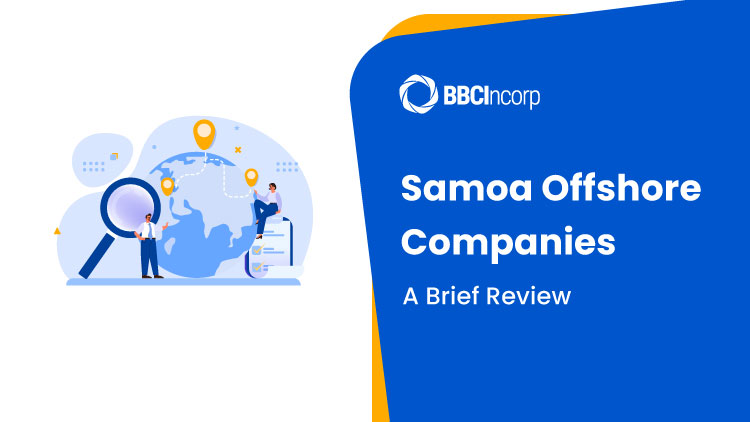Offshore Company Formation Services: Establish Your Presence Worldwide
Offshore Company Formation Services: Establish Your Presence Worldwide
Blog Article
Master the Art of Offshore Business Formation With Professional Tips and Approaches
In the realm of global organization, the establishment of an overseas company demands a calculated approach that exceeds plain paperwork and filings. To navigate the details of offshore business development successfully, one should be skilled in the nuanced pointers and strategies that can make or break the procedure. By recognizing the advantages, complexities of jurisdiction option, structuring techniques, compliance requirements, and continuous administration fundamentals, one can open the full potential of overseas entities. These professional understandings offer a glance right into a globe where savvy choices and thorough preparation pave the means for success in the international business landscape.
Advantages of Offshore Firm Development

Developing an offshore business supplies a series of benefits for businesses seeking to optimize their financial procedures and international existence. Among the main advantages is tax obligation optimization. Offshore jurisdictions usually provide positive tax structures, permitting business to decrease their tax worries legitimately. This can lead to significant price financial savings, improving the company's productivity in the future.
Furthermore, overseas companies supply improved personal privacy and privacy. In many territories, the details of firm ownership and economic details are kept private, providing a layer of security versus competitors and prospective threats. This privacy can be especially advantageous for high-net-worth people and businesses operating in delicate industries.
In addition, offshore business can facilitate worldwide organization growth. By developing a presence in multiple jurisdictions, companies can access new markets, expand their profits streams, and mitigate dangers related to operating in a single area. This can result in enhanced strength and growth chances for business.

Selecting the Right Territory
Because of the countless benefits that offshore business development can provide, an essential critical consideration for services is selecting the most ideal territory for their operations. Selecting the appropriate jurisdiction is a decision that can dramatically impact the success and effectiveness of an overseas company. When selecting a territory, variables such as tax policies, political security, lawful structures, personal privacy regulations, and reputation must be meticulously evaluated.
Tax policies play a crucial duty in determining the financial benefits of operating in a certain territory. Some overseas areas supply favorable tax systems that can help companies lessen their tax obligation responsibilities. Political security is important to ensure a secure business environment devoid of prospective disruptions. Legal frameworks vary across jurisdictions and can affect just how organizations run and settle disagreements. offshore company formation.
Privacy regulations are crucial for keeping discretion and securing sensitive business info. Selecting jurisdictions with durable privacy legislations can protect your company's data. In addition, the track record of a jurisdiction can influence just how your business is perceived by customers, companions, and investors. Choosing a territory with a strong track record can enhance reliability and rely on your overseas business. Cautious consideration of these variables is necessary to make an informed decision when picking the best territory for your offshore company development.

Structuring Your Offshore Business
When establishing your offshore firm, the structuring procedure is an important step that requires mindful preparation and factor to consider. The way you structure your offshore company can have considerable effects for taxation, liability, compliance, and overall operational performance. One common structuring alternative is to establish a standalone overseas entity that runs individually description from your onshore service. This can provide added possession protection and tax obligation advantages yet may additionally involve higher arrangement and maintenance expenses. An additional method is to develop a subsidiary or branch of your existing company in the offshore territory, enabling closer combination of operations while still benefiting from overseas benefits.
Consideration must additionally be provided to the possession and management structure of your offshore company. Decisions relating to investors, supervisors, and police officers can influence administration, decision-making procedures, and regulatory obligations. It is a good idea to look for expert recommendations from lawful and monetary specialists with experience in overseas business development to make sure that your selected structure lines up with your company goals and adhere to relevant laws and regulations.
Compliance and Law Fundamentals
Engaging with legal consultants or conformity visit specialists can provide useful advice in navigating complicated governing structures. By prioritizing compliance and policy basics, overseas firms can operate fairly, alleviate threats, and construct trust with stakeholders and authorities.
Maintenance and Ongoing Administration
Efficient monitoring of an overseas firm's ongoing maintenance is necessary for guaranteeing its lasting success and conformity with regulatory requirements. Regular maintenance tasks include updating corporate records, renewing licenses, view website filing annual reports, and holding shareholder meetings. These activities are important for preserving great standing with authorities and protecting the legal condition of the offshore entity.
Additionally, ongoing management involves supervising financial transactions, keeping an eye on conformity with tax obligation guidelines, and adhering to reporting requirements. It is vital to designate competent experts, such as accountants and legal experts, to aid with these obligations and make sure that the business operates smoothly within the boundaries of the law.
Furthermore, remaining educated regarding modifications in regulations, tax laws, and compliance criteria is extremely important for efficient continuous management. Routinely reviewing and upgrading business governance techniques can assist mitigate threats and guarantee that the overseas firm remains in good standing.
Final Thought
To conclude, understanding the art of overseas company development requires cautious consideration of the advantages, jurisdiction choice, company structuring, conformity, and ongoing administration. By understanding these crucial aspects and applying professional pointers and techniques, people can effectively develop and preserve offshore business to optimize their business opportunities and economic benefits. It is important to prioritize compliance with regulations and carefully manage the company to ensure lasting success in the offshore business atmosphere.
Report this page